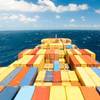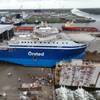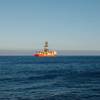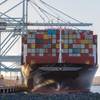The Russian Register of Shipping's seminar on Maritime Safety and Security
in St. Petersburg this week attracted an array of international speakers,
including INTERTANKO MD Peter Swift. The seminar was opened by the Russian
Minister of Transport, Sergei Frank, who was joined by IMO Secretary General
elect, Thimio Mitropoulos; USCG Assistant Commandant, Tom Gilmour; IMO MEPC
Chairman, Andreas Chrysostomou; EC Director of Maritime Transport, Fotis
Karamitsos. Also present were senior representatives of the maritime
administrations of Denmark, Estonia, Finland, Germany, Greece, Latvia, Malta
and the Marshall Islands, while industry and other participants included
ICS, Intercargo, BIMCO, UK P&I, Tokyo MoU, Germanischer Lloyd and the
Bulgarian Register.
In his presentation, entitled 'Towards Zero Tolerance', Peter Swift
continued his theme from the previous seminar. "New oil means new
responsibilities: Russia's export ships carry more than oil - they carry
added responsibilities for quality management and operation", he said.
Russia's oil production has overtaken Saudi Arabia's with exports of crude
and products over 5m bbls/day and generating some 10% of the country's GDP.
An increasing quantity of this oil goes into Europe - 3.4m bbls/day of crude
in 2002 and 0.9m bbls/day of products (compared to just 0.1m bbls/day of
crude to the US and 0.13m of products, although these US figures are growing
fast).
Black Sea oil exports have roughly trebled in the last ten years while those
from the Baltic have increased approximately ten times. But this growing
volume of exported oil comes with more than its fair share of environmental
sensitivities - inadequate reception facilities, pressure to maximise
deadweight capacity, ice transits, Baltic sulphur emission controls,
Bosporus transits, and ship-to-ship transfers in the Black Sea and
Mediterranean.
In addition, the fact that much of this oil is being shipped into Europe
makes for one more sensitivity. Swift stressed that since the Prestige
disaster, EU tolerance for further oil pollution is effectively zero, as
evidenced by its hard-line attitude on regulatory issues, which has resulted
in unilateral regulation ahead of IMO.
This is where the new responsibilities come in, says Swift. Successful
export growth requires environmental awareness, the use of quality shipping,
responsible management and operation of export tankers, and last but not
least total management of the Safety Chain.
Sponsored Content
Chris-Marine’s solutions help to prolong engine lifetime

Subscribe for
Maritime Reporter E-News
Maritime Reporter E-News is the maritime industry's largest circulation and most authoritative ENews Service, delivered to your Email five times per week









